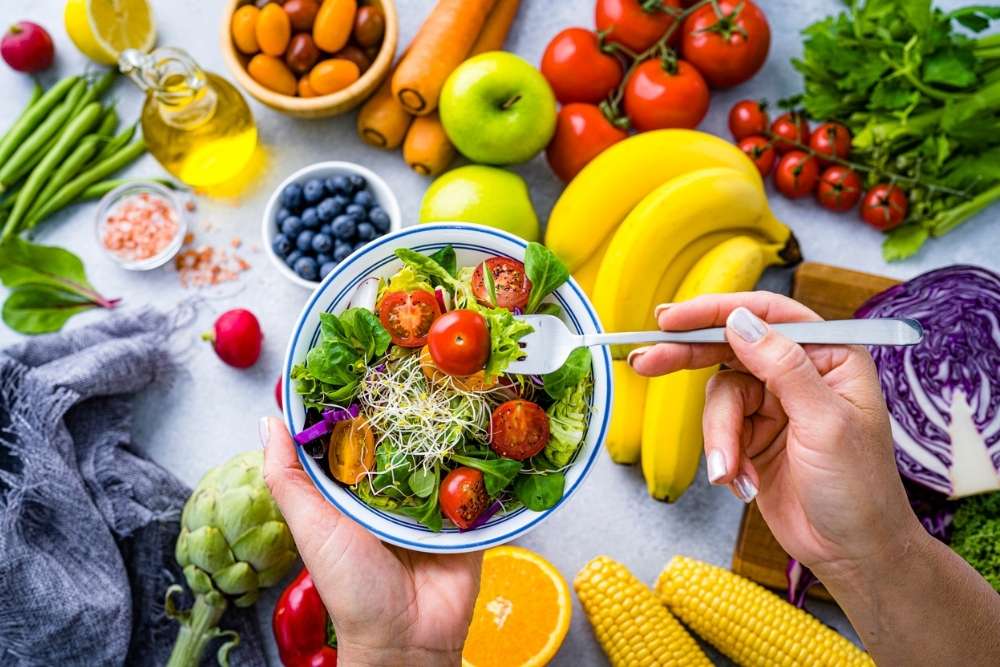While many people may not automatically realize it, nutrition can be the thread that ties mind, body, and spirit together. If you’ve struggled to nourish yourself with a healthy, diverse diet during or after substance use, you’re not the only one.
At St. Joseph Institute in Pennsylvania, your health and wellness are always a top priority, whether you’re attending residential treatment in Port Matilda or traveling to Wexford, P.A, to receive outpatient support. Our nutrition services exist to help you reconnect with food that strengthens your body.
How Substance Use Affects Your Appetite
Substance use, altered or decreased appetite, and poor nutrition may often go hand in hand. When you’re drinking or using substances, food may fall to the bottom of your priorities. You might eat erratically, binge on sugary snacks, or skip meals for days. Your appetite may swing from nonexistent to insatiable.
Cocaine and alcohol use in particular seem to cause long-lasting appetite changes, even long after the substances are gone. In some cases, this may lead to what researchers call “food addiction,” where the brain treats sugar or overeating the same way it once responded to drugs. That doesn’t mean you’ve failed. It just means your brain is still healing, and your hunger signals might feel a little scrambled right now.
When battling substance use disorder (SUD), you might:
- Lose interest in food for chunks of time
- Find yourself only eating once a day or only late at night
- Replace nutrient-rich foods with sugar, alcohol, or empty calories
- Feel nauseous, anxious, or disconnected from your body’s hunger cues
You can learn to rebuild those healthy connections in recovery, and understanding what substances have done to your gut and how that affects your eating habits may be the first step.
Poor Gut Health and Substance Use
When you habitually use substances, your gut health may take a major hit as your ability to absorb nutrients weakens. Your digestion may slow down, or your hormones may start failing to tip you off to real feelings of hunger or fullness.
Here’s what substance-use-induced gut dysregulation might look like in your body:
- Your body might not get what it needs when you eat, causing poor nutrient absorption
- Disrupted hormones may leave you feeling hungry all the time—or never full
- You might gain or lose weight in ways that feel sudden or confusing
What you eat can help rebalance some of these symptoms, but you may not know where to start. Nutritional education and interventions may be the tool you need to begin incorporating nutrients like amino acids and omega-3s that support mental health, potentially helping to reduce relapse risk in recovery. This means that preparing and consuming the right foods may help you feel stronger, more stable, and less likely to chase substances for energy, comfort, or escape.
Malnutrition and Substance Use
Malnutrition isn’t just about being underweight. It means your body isn’t getting the right balance of nutrients it needs to function well. When you’re dealing with SUD, malnutrition may sneak up on you fast—and its effects can stick around, even during recovery.
It can show up as:
- Nutrient deficiencies that make you feel weak, irritable, or depressed
- Low energy, poor wound healing, and trouble sleeping
- Cravings that may actually be your body asking for nutrients—not just another high
- A confusing overlap between food cravings and substance cravings
Many clients in recovery have altered body composition and hormonal imbalances, which can make cravings for healthy eating even more rare. That’s why it’s so important to work with our recovery care specialists in Pennsylvania who understand these challenges and can help you create a nutrition plan that supports your mind and body at the same time.
Compulsive Eating and Substance Use
If you find yourself eating large amounts of food quickly, even when you’re not hungry—or eating to the point of discomfort—you may be dealing with compulsive eating. This isn’t just about having a sweet tooth. Compulsive overeating can be a way your brain tries to fill the void left by substance use. It might show up as:
- Craving sugar, especially during detox
- Feeling out of control when eating
- Using food to self-soothe, especially during emotional lows
- Eating frequently but never feeling satisfied
Recovery and Nutritional Services in Port Matilda, PA
The changes in your appetite have nothing to do with willpower or your personality—it’s about how substances can disrupt how your brain and body work together to signal hunger, satisfaction, or even cravings. Here’s the good news: you don’t have to figure this out on your own.
In Port Matilda, we don’t just treat symptoms—we help you heal from the inside out. If you’re ready to start nourishing your body again and want recovery that includes your full self, contact us today to learn more about how our programs can help.


